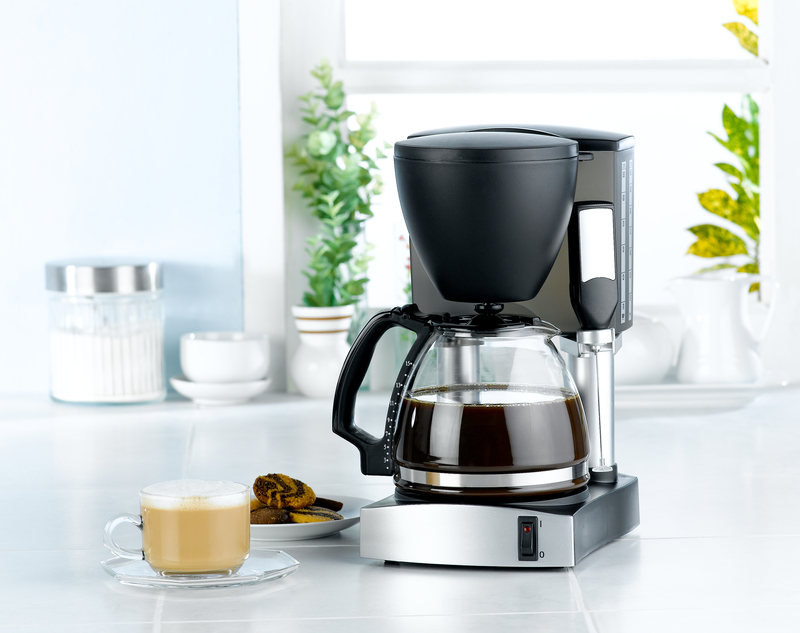Effective Techniques to Banish Pet Odors from Your Home
Posted on 19/09/2025
Effective Techniques to Banish Pet Odors from Your Home
Pet ownership brings boundless joy, but also unique challenges--one of which is tackling pet odors that linger in your home. Whether you're dealing with dog smells, cat urine, or even the subtle odors from smaller pets, keeping your living space fresh is essential for comfort and health. In this comprehensive guide, we explore the most effective techniques to banish pet odors from your home, ensuring a clean and inviting environment for both you and your furry friends.

Understanding the Sources of Pet Odors
Before investing time and energy into odor removal, it's important to identify the sources of unwelcome scents. Pet odors commonly originate from:
- Pet fur and dander
- Urine and feces accidents
- Pet bedding and litter boxes
- Pet saliva (on toys and belongings)
Knowing the root causes helps you apply the correct techniques and eliminate pet smells more efficiently.
Daily Cleaning Habits to Prevent Pet Odors
1. Vacuum and Sweep Frequently
Pet hair and dander are notorious for clinging to carpets, rugs, and upholstery. Incorporating daily or at least three-per-week vacuuming routines can drastically reduce lingering smells.
- Use a high-efficiency particulate air (HEPA) filter vacuum for best results
- Don't neglect furniture, drapes, and pet beds
- Empty vacuum bags or chambers regularly
2. Wash Pet Bedding Regularly
Your pet's bedding is a common odor magnet. Wash these items every week with hot water and a mild, pet-safe detergent. This not only removes odors but also helps reduce allergens in your home.
3. Clean Pet Toys and Collars
Soft toys, collars, and harnesses accumulate bacteria and saliva, contributing to overall pet house odors. Run them through the washing machine or clean manually with warm, soapy water followed by thorough rinsing and drying.
4. Maintain Litter Boxes and Pet Areas
For cat owners, litter box odors are a primary concern. To minimize smells:
- Scoop litter boxes at least once daily
- Change litter completely every week
- Use baking soda or special odor-absorbing products in the litter
- Regularly replace and disinfect litter boxes and liners
Deep Cleaning: How to Remove Embedded Pet Odors
1. Carpet and Upholstery Cleaning
Dog and cat odors seep deep into soft surfaces like carpets, area rugs, and sofas. To effectively eliminate pet odors from carpets, follow these steps:
- Blot (don't rub) pet accidents immediately using disposable paper towels
- Apply a solution of equal parts white vinegar and water to neutralize odors
- Sprinkle baking soda liberally over affected areas and let it sit overnight before vacuuming
- Invest in a professional steam clean or carpet cleaning service twice a year for the best results
2. Cleaning Hard Floors
For tile, hardwood, or laminate flooring, mop regularly with a mild detergent. For stronger pet urine smells, use an enzyme cleaner formulated for pet messes to break down the compounds causing the odor. Avoid ammonia-based products, as they may mimic the smell of urine to pets, prompting repeat offenses.
3. Walls and Baseboards
Sometimes, pet accidents splash up onto walls and baseboards. Clean these areas with warm, soapy water. For persistent odors, wipe with a diluted vinegar solution or an enzyme spray.
Natural Solutions to Remove Pet Odors
1. Baking Soda: The Odor Neutralizer
Baking soda is a staple in home cleaning for a reason. Sprinkle it over carpets, mattresses, or inside your pet's bed before vacuuming. Its natural neutralizing ability absorbs unpleasant smells efficiently without introducing chemicals into your home.
2. Vinegar
White vinegar tackles odors by neutralizing alkaline residues from pet urine. Mix equal parts vinegar and water in a spray bottle and spritz on affected areas, blotting after a few minutes. Vinegar smell dissipates upon drying, taking pet odors with it.
3. Activated Charcoal
Place activated charcoal bags in odor hotspots, such as litter areas, near pet beds, or inside shoes your cat might find appealing. Charcoal absorbs smells passively and can be "recharged" by placing it in sunlight periodically.
4. Essential Oils (Use with Caution)
Some essential oils such as lavender and lemon are effective natural deodorizers but be aware that several oils are toxic to pets (including tea tree and citrus oils).
- Use sparingly and consult with your vet
- Never apply oils directly to pets
- Diffuse in well-ventilated rooms only
Specialized Products for Banishing Pet Odors
Enzyme Cleaners
Enzyme-based cleaning products are vital for anyone facing stubborn pet urine smells. These cleaners break down the chemical residues left behind, rather than masking the odor. Choose enzyme products specifically designed for pet messes and follow the instructions for best results.
Odor-Neutralizing Sprays and Powders
Use sprays and powders that are safe for both pets and children. Some products not only neutralize but also help to freshen the air, leaving behind a pleasant, clean scent. These are great for spot treatments or rapid deodorizing.
Air Purifiers
HEPA air purifiers effectively capture airborne particles, including pet dander, fur, and even odor molecules. For optimal results, place units in rooms where your pets spend the most time.
Evolving Your Pet Care Routine
1. Bathe and Groom Pets Regularly
Regular grooming is essential in controlling animal odors at the source. Depending on your pet's breed and coat, bath frequency varies; consult a vet or groomer for guidance. Don't forget to brush their fur frequently to reduce shedding and dander in the home.
2. Dental Hygiene
Bad breath can permeate a room, especially with smaller animals living in confined spaces. Brush your pet's teeth often, provide dental chews, and opt for annual dental cleanings from your vet. This prevents oral bacteria from contributing to household odors.
3. Maintain a Clean and Healthy Diet
Your pet's diet significantly affects the aroma of their fur and waste. Feed high-quality, species-appropriate food and provide ample water. Discuss dietary changes with your veterinarian for pets displaying stronger-than-average odors.
Professional Services for Stubborn Pet Odors
When household solutions fall short, it's time to consider professional intervention:
- Professional carpet and upholstery cleaning
- HVAC vent and duct cleaning to address absorbed pet smells
- Odor removal specialists with specialized equipment and cleaning agents
While an investment, these services can be game-changers for persistent pet odor problems.
Tips for Keeping Your Home Smelling Fresh
- Open windows for ventilation, allowing fresh air to circulate and carry away smells
- Use exhaust fans in rooms where pets spend time to help remove odor-laden air
- Place indoor plants (pet-safe varieties) to naturally filter air and absorb odors
- Keep a regular cleaning schedule for all pet-related items--including cages, aquariums, and terrariums
- Train pets to avoid "problem spots" in the house
How to Prevent Pet Odors from Returning
1. Set House Rules
Keep pets off furniture and beds as much as possible, or use washable covers that can be laundered often. Establish pet-only areas to contain shedding and odor.
2. Address Accidents Immediately
Prompt cleanup is crucial. The longer a mess sits, the harder it is to remove both stains and smells. Blot accidents right away and treat with an enzyme cleaner.
3. Use Preventative Products
Try pet-safe sprays or deterrents to discourage marking or repeat accidents in the same areas. Regularly reapply deodorizing powders or sprays in high-traffic zones.

Frequently Asked Questions about Pet Odor Removal
Q: Can pet odors be eliminated permanently?
Answer: With diligent cleaning, maintenance, and prevention, most pet odors can be removed and kept at bay. However, deep-set stains or smells in carpets or walls may occasionally require professional treatment for permanent results.
Q: Are scented candles or air fresheners effective?
Answer: While these can help mask odors temporarily, they usually don't address the root cause. For lasting freshness, remove the source of the smell.
Q: Is it safe to use bleach to clean pet odors?
Answer: Bleach can be harsh and potentially dangerous for pets. Always use pet-safe cleaning products and ventilate areas well if stronger disinfectants are necessary.
Conclusion: Enjoy a Fresh, Odor-Free Home with Pets
Banishing pet odors from your home is entirely achievable with the right strategies. Regular cleaning, immediate accident attention, natural deodorizing solutions, and smart use of specialized products will create welcoming spaces for guests and family alike. Remember, a fresh-smelling home not only feels cleaner, but also fosters a healthier environment for you and your beloved pets. With consistent effort and these effective techniques, you can enjoy all the benefits of pet companionship--without the unwanted smells!
Latest Posts
Daily Routines to Ensure a Dust-Free, Allergy-Friendly Home
Secrets to Professional Car Detailing for Enthusiasts
Keep Your Window Sills Spotless by Fighting Mould Issues



